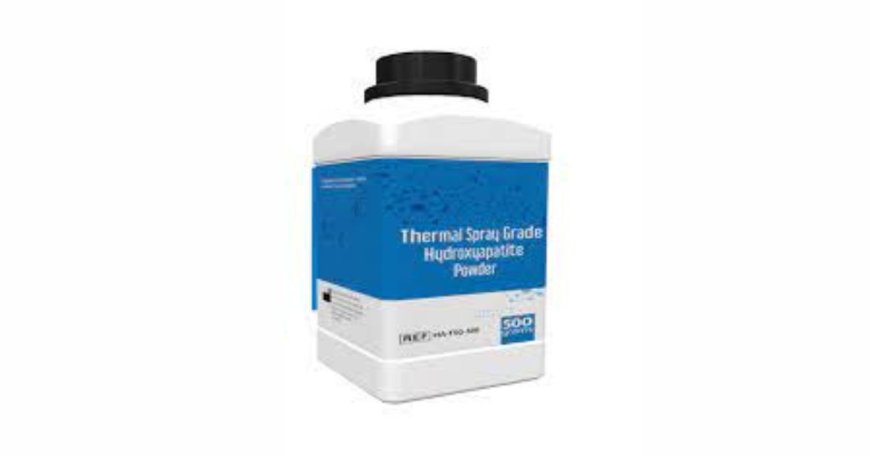Importing Hydroxyapatite Bulk Safely and Legally
This article outlines everything buyers and procurement professionals need to know to import hydroxyapatite bulk legally and efficiently, covering logistics, documentation, safety protocols, and regulatory requirements.

Hydroxyapatite (HA) is a high-value, biocompatible compound widely used in industries such as biomedical, dental, pharmaceuticals, ceramics, and cosmetics. As global demand for hydroxyapatite bulk increases, many businesses turn to international suppliers to meet volume requirements at competitive prices. However, importing this mineral compound involves strict regulatory compliance, proper documentation, and stringent quality control to ensure the shipment arrives safely, legally, and without customs delays.
This article outlines everything buyers and procurement professionals need to know to import hydroxyapatite bulk legally and efficiently, covering logistics, documentation, safety protocols, and regulatory requirements.
Understand the Nature and Classification of Hydroxyapatite
Before initiating any import activity, it is critical to understand how hydroxyapatite is classified under international trade and customs codes.
-
Chemical Name: Calcium hydroxyapatite
-
CAS Number: 1306-06-5
-
Customs HS Code: Typically falls under 2835.26 (phosphates) or 3824.99 depending on the country of import.
Be sure to verify the correct HS code with your local customs authority to ensure accurate tariff classification and avoid unnecessary duties or penalties.
Choose Reputable, Compliant Suppliers
When sourcing hydroxyapatite from abroad, always work with qualified manufacturers or distributors who:
-
Offer Certificates of Analysis (CoA) for each batch
-
Maintain ISO 13485, ISO 9001, or GMP certifications
-
Have prior experience in international shipping
-
Can provide Material Safety Data Sheets (MSDS) and shipping labels as per hazardous material compliance, if applicable
Verifying a suppliers credentials and reputation minimizes the risk of regulatory violations, product adulteration, or quality inconsistencies.
Check Import Regulations in Your Country
Each country has its own import control regulations, especially for bioactive or pharmaceutical-grade substances like hydroxyapatite. You may need to comply with rules set by:
-
Food and Drug Administration (FDA) in the USA
-
European Medicines Agency (EMA) in the EU
-
Central Drugs Standard Control Organization (CDSCO) in India
-
Ministry of Health, Labour and Welfare (MHLW) in Japan
In some regions, hydroxyapatite used in medical devices or supplements is considered a controlled substance requiring:
-
Product registration
-
Import license
-
Pre-shipment inspection
-
Customs valuation certificates
Contact your countrys health authority and customs department early in the process to avoid shipment holds or penalties.
Ensure Proper Documentation is in Place
Complete and accurate documentation is key to ensuring that your hydroxyapatite shipment clears customs without issues. Required documents typically include:
-
Commercial Invoice
-
Packing List
-
Bill of Lading (B/L) or Air Waybill (AWB)
-
Certificate of Origin (COO)
-
Material Safety Data Sheet (MSDS)
-
Certificate of Analysis (CoA)
-
Import License (if required)
Some countries may also request free sale certificates or GMP declarations for regulatory clearance.
Comply With Safety and Packaging Standards
Hydroxyapatite, although non-toxic and non-flammable, should be packaged to preserve purity, prevent contamination, and ensure safety during transport.
Ensure that your supplier follows UN packaging standards, including:
-
Sealed polyethylene or HDPE containers
-
Moisture-proof double-layer packaging
-
Palletized or crated packaging for stability
-
Proper labeling with product name, CAS number, batch number, and handling precautions
Improper packaging can lead to customs rejection, product degradation, or even shipment return.
Hire a Licensed Customs Broker or Import Agent
Navigating import regulations can be complex, especially when dealing with high-purity scientific materials. Partnering with a licensed customs broker or import consultant helps in:
-
Classifying the product accurately
-
Filing documentation electronically
-
Managing duties, taxes, and clearance fees
-
Tracking your shipment from origin to destination
Their expertise ensures compliance and reduces the risk of costly delays.
Understand Import Duties, Taxes, and Tariffs
Importing hydroxyapatite may attract:
-
Import duty
-
Customs handling fees
-
Goods and Services Tax (GST)/VAT
-
Anti-dumping duties (in some jurisdictions)
To optimize costs:
-
Check if your country has a Free Trade Agreement (FTA) with the origin country
-
Apply for duty drawback if re-exporting as part of another product
-
Use bonded warehousing if import tax deferral is allowed
Some suppliers may offer CIF pricing (Cost, Insurance, Freight), which includes shipping and insurance, while others may prefer FOB (Free on Board), which requires you to manage logistics.
Arrange Quality Control and Third-Party Testing
To avoid receiving non-conforming materials, especially when importing large quantities of hydroxyapatite bulk, its recommended to:
-
Arrange pre-shipment inspection at the origin
-
Request random sampling
-
Conduct third-party lab analysis upon arrival
Insisting on third-party testing adds an extra layer of assurance that you are receiving what was orderedespecially crucial for medical or pharmaceutical use.
Stay Updated on Trade and Regulatory Changes
Import regulations are constantly evolving. Sudden changes in:
-
Tariff structures
-
Export bans
-
Environmental safety policies
-
Global trade agreements
...can affect your ability to import hydroxyapatite efficiently. Subscribe to government trade portals, industry newsletters, and monitor WTO guidelines to stay compliant and proactive.
Consider Long-Term Supply Chain Strategies
Once youve successfully imported hydroxyapatite bulk once, streamline future imports by:
-
Establishing long-term contracts with suppliers
-
Creating a compliance checklist for recurring shipments
-
Maintaining a local stock buffer to prevent downtime
-
Exploring dual sourcing from multiple countries
This minimizes disruptions and gives you better bargaining power over time.
Conclusion: Safe, Legal, and Efficient Hydroxyapatite Imports
Importing hydroxyapatite bulk can be a smooth and profitable operation when done with diligence, legal awareness, and quality assurance at every step. Whether you're a biomedical company, dental supplier, or research institution, mastering these guidelines ensures that your international procurement process is both cost-effective and regulatory compliant.





























